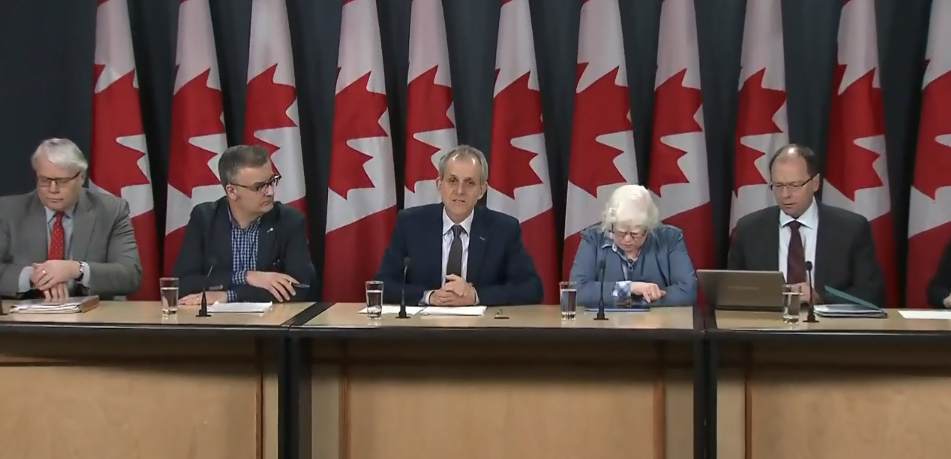Legalizing Suicide, Enabling Death
"If I could give my patients anything, I would give them life.""But life isn't necessarily the option they're being presented with."
"Many of them are choosing between very hard choices, and my wish for them to be better certainly doesn't make that so."Julie Campbell, Ontario nurse, assisted dying services"Bill C-7 declares an entire class of people, those with physical disabilities, as potentially appropriate for suicide -- that their lives are potentially not worth living.""Indeed were it not for their disability, we would not be willing to end them. I cannot imagine a more degrading and discriminatory message for our society to communicate to our fellow citizens living with disabilities."Dr.Ewan Goligher, assistant professor, University of Toronto
/https://www.thestar.com/content/dam/thestar/opinion/contributors/2020/01/28/is-medically-assisted-dying-a-choice-if-persons-with-disabilities-arent-given-the-necessary-supports-to-live/jdt105342815.jpg)
"Until we're committed to making sure that everybody has an equal opportunity to live a good life, then medically assisted death on the basis of that disability is not the solution."Krista Carr, executive vice-president, Inclusion Canada"[...The requirement for natural death to be [reasonably foreseeable [is an arbitrary one, in which] suffering takes a back seat [to the question of how far away a patient might be from death].""This is a flagrant contradiction of the fundamental principles concerning the autonomy of competent people, and it is this unequal recognition of the right to autonomy and dignity that is discriminatory in this case."Quebec Superior Court 2019 decision on federal MAID law
 |
| The House of Commons justice committee heard today from opponents of the federal government's plan to change the rules for medical assistance in dying. (Shutterstock) |
Canada's Parliament is studying Bill C-7, an update of the Liberal government's medical assistance in dying (MAID) regime which became law in 2016. The original legislation has a provision that the natural death of a patient must be 'reasonably foreseeable' for that person to qualify for medical assistance in dying. Because of a Quebec Superior Court decision brought down in 2019 that the original law restricts assisted death to terminally ill patients unconstitutionally, it is being revisited.
The result is Bill C-7, to update the MAID regime. It does not sit well however, with disability advocates who have been raising their concerns over the new assisted dying law. Their concern is that it lacks safeguards to protect the most vulnerable of Canadians. One witness in the House of Commons at a justice committee hearing described the 'norm-shattering legislation' to allow patients with non-terminal illnesses to be euthanized.
Advocates for the disabled feel the new law could lead disabled individuals particularly to seek out euthanasia even where the patient might recover to full health. They call on Ottawa to adjust the proposed bill. Committee chair at the Council of Canadians with Disabilities, Dr.Heidi Janz, spoke of her "alarm at the breakneck speed at which this committee is operating", calling on Parliament members for an extension of public consultations on the legislation.
 |
| Roger Foley, who suffers from an incurable neurological disease, is urging MPs not to expand medical assistance in dying to allow people with disabilities to end their lives. He spoke to the Commons justice committee today via Zoom from his hospital bed in London, Ont. (CBC News) |
Another committee member who lives with cerebral palsy, spoke of her personal experience when she underwent a long fight with a serious bout of pneumonia. Taylor Hyatt described her doctor at one point making the suggestion that she might consider the possibility of medically assisted death. As it happened, in time she recovered from the illness. She was 20 years of age at the time. She is aghast that medical professionals discounted the chance she would return to health and worries this experience of hers could be repeated frequently should Bill C-7 pass.
"All the doctor seemed to see, though, was a disabled woman, alone, sick, tired and probably tired of living", she said. Policy makers had sought to strike a balance between protecting patients and allowing them their right to decide when faced with a chronic illness whether they would choose to select MAID. The current law has on two occasions been challenged on constitutional grounds in Canada.
 |
While many health-care professionals and advocacy groups lend their support to the assisted dying regime brought in by the Liberal government, feeling it proffers humane relief for patients grappling with chronic and often painful illnesses, many others do not, pointing out the humane alternative of better and more personal care for those in desperate medical straits.
Overwhelmingly, those who seek out euthanasia to end their lives are those who have tried alternatives but who determine ultimately they have no other choices, according to Julie Campbell, a nurse in Ontario who specializes in guiding patients seeking assisted dying services. Recently an Angus Reid Poll commissioned by Cardus, found 77 percent of Canadians consider access to MAID to represent a basic human right.
On the other hand, 48 percent of the respondents were "cautious supporters" with concerns revolving about potential abuses of the system, in particular targeting aging and vulnerable people. Changes under the new bill would reduce the number of witnesses required from two to one, and drop a requirement that a patient must be capable of consent a second time directly prior to taking their lives. The requirement that a person must wait ten days after being approved for the procedure would also be dropped.
 |
| People who request medical assistance in dying can be motivated by a
range of factors unrelated to their medical condition or prognosis.
These factors make some people vulnerable to request an assisted death
when what they want and deserve is better treatment – to have their
needs for care, respect, and palliative and other supports better met. Inclusion Canada |
Labels: Canada, Disabled, Legislation, Medical Assistance in Dying
0 Comments:
Post a Comment
<< Home